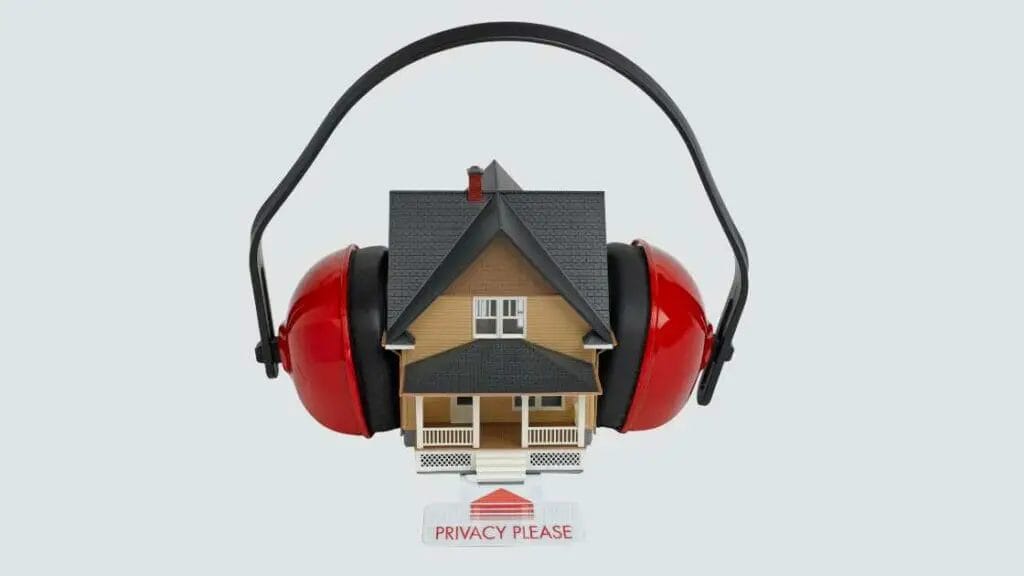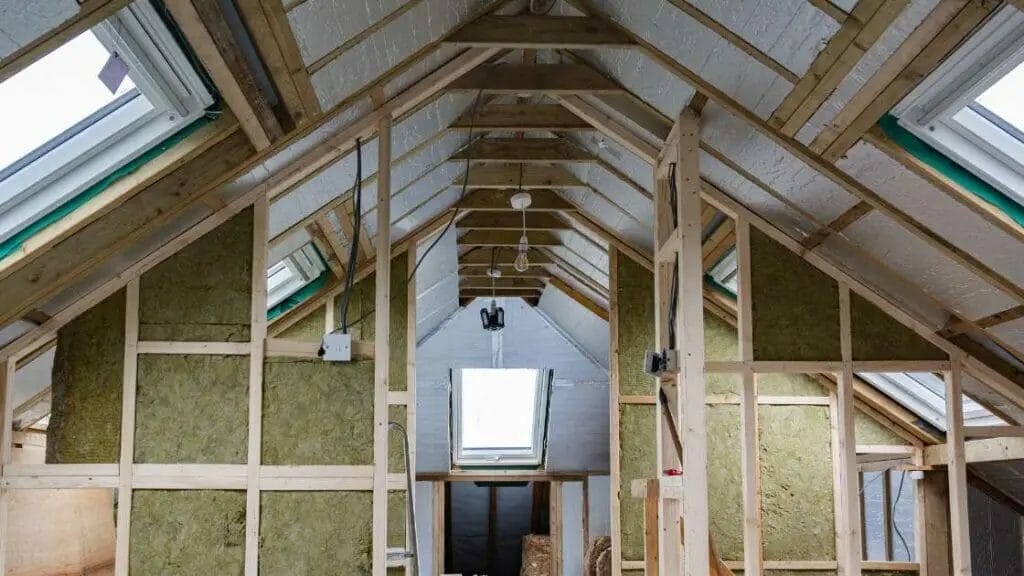Are you considering purchasing a new townhome but worried about noisy neighbors? Or maybe you have a big family that can occasionally become rowdy, and you are worried about disturbing those living in the neighboring units?

We get you. Soundproofing is a big concern for homebuyers, especially in urban areas where living spaces are often close.
While townhome developers have made significant strides in soundproofing technology, not all new townhomes are created equal.
To make an informed decision before buying a property, you must research and understand the factors contributing to soundproofing.
In this article, we’ll explore the common soundproofing features utilized in new townhomes and provide tips on what to look for when searching for a soundproof home.
So, whether you’re a first-time homebuyer or looking to upgrade to a new townhome, keep reading to learn more about the soundproofing capabilities of these modern dwellings.

Understanding the basics of soundproofing
Soundproofing is the process of reducing or eliminating sound transmission between two spaces. It involves using materials and techniques that absorb, reflect, or block sound waves.
The effectiveness of soundproofing depends on the quality of the materials used, the design of the building, and the techniques employed.
There are two types of soundproofing: airborne and impact soundproofing.
- Airborne soundproofing is the process of reducing the transmission of sound waves through the air.
This is typically achieved by using insulation materials, such as fiberglass or mineral wool, which absorb sound waves. Double-pane windows and doors can also help to reduce airborne sound transmission. - Impact soundproofing involves reducing the vibration caused by impact noise, such as footsteps or doors slamming.
This can be achieved by using materials that have high density, such as concrete, or by installing resilient channels or rubber underlayments.
Factors that affect soundproofing in new townhomes
Several factors affect the soundproofing capabilities of new townhomes.
One of the most important factors is the location of the townhome.
Townhomes in urban areas are more likely to be exposed to noise pollution from traffic, neighboring buildings, and other sources. Developers must take extra steps to ensure these homes are properly soundproofed.
Another factor that affects soundproofing is the type of construction used.
Townhomes built with lightweight materials, such as wood or drywall, are more susceptible to sound transmission than those constructed with heavier materials, such as concrete or brick.
In addition, the layout of the townhome can also affect soundproofing.
Townhomes with shared walls, floors, or ceilings with neighboring units are more likely to experience sound transmission than those that are freestanding.
Soundproofing techniques used in new townhomes
Developers use a variety of techniques to soundproof new townhomes.
One of the most common techniques is using insulation materials, such as fiberglass or mineral wool. These materials absorb sound waves and reduce the amount of sound transmitted between walls.
Another technique is the use of resilient channels or rubber underlayments. These materials help to reduce the vibration caused by impact noise.
In addition to these techniques, developers may use sound-dampening drywall or acoustical caulking to improve sound transmission reduction.
The use of soundproof curtains or blinds can also help to reduce sound transmission through windows.

Testing soundproofing in new townhomes
Testing the soundproofing capabilities of a new townhome before making a purchase is a wise move. You can do this by conducting a sound transmission class (STC) test.
The STC rating measures the sound transmission loss between two spaces and is the most common rating used to measure the soundproofing capabilities of a building. The higher the STC rating, the better the soundproofing.
You can also check the property’s impact insulation class (IIC) rating. This rating measures the ability of a floor or ceiling to reduce impact noise, such as footsteps or furniture being moved.
How to improve soundproofing in new townhomes
If you’re not satisfied with the soundproofing capabilities of your new townhome, there are several things you can do to improve it.
- Install sound-absorbing materials, such as acoustic panels, on the walls or ceilings.
- Add weatherstripping to doors and windows to reduce the sound transmitted through them.
- Add rugs or carpeting to floors to help absorb sound.
- Use soundproof curtains or blinds to reduce sound transmission through windows.
Advantages of living in a soundproofed townhome
Living in a soundproofed townhome has several advantages.
First, it provides a quieter and more peaceful living environment. This is especially important in urban areas where noise pollution can be a major problem.
In addition, soundproofing can also improve the energy efficiency of a home by reducing the amount of air that is exchanged between the interior and exterior of the home. This can lead to lower heating and cooling costs.
Disadvantages of living in a townhome with poor soundproofing
On the other hand, living in a townhome with poor soundproofing can be a major source of stress and frustration.
It can make it difficult to sleep, work, or relax in your own home. It can also negatively impact your mental and physical health by increasing stress levels and causing sleep disturbances.
In addition, poor soundproofing can also make it difficult to sell your home in the future.
Homebuyers are often willing to pay a premium for properly soundproofed homes. On the other hand, poor soundproofing can reduce the value of your home.